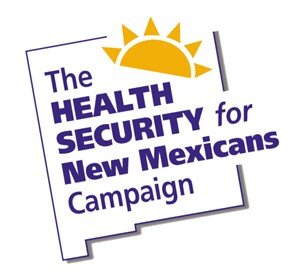On November 5, Donald Trump was elected to become the 47th president of the United States. To pay for continued tax decreases, he has promised massive cuts in federal spending. It would be wise to assume that the federal health dollars New Mexico depends on – through programs like Medicare and Medicaid -- will be on the chopping block.
This makes it all the more important for New Mexico to develop systemic health cost solutions. This makes investment in the Cost Drivers Project more urgent than ever. The Health Security Campaign and leaders on the Legislative Health and Human Services Committee are determined that the $440,000 appropriated for the Health Cost Drivers Project be spent on contracting with the right experts who will provide information that helps LHHS develop New Mexico appropriate solutions that address the causes of runaway health costs.
All countries that have guaranteed universal coverage – even those with small populations – have developed policies that not only result in lower per capita spending but also produce better health outcomes than the United States. In the uniquely complex U.S. system of public and private payers — featuring thousands of health plans, each with its own cost-sharing requirements and coverage limitations — physicians and other health care providers spend enormous amounts of time and effort billing insurers.
- “Portrait of the Failing US Health System: Comparing Performance in 10 Nations,” The Commonwealth Fund, September 2024, David Blumental, Evan D. Gumas and Arnavshah
We are excited to report that the Legislative Health and Human Services Committee (LHHSC) has been communicating with experts who will work with the committee and stakeholders on ways to make hospitals financially sustainable and improve patient care.
They are also exploring solutions to other key issues such as how to simplify the administrative complexity of multiple payment and accountability systems that impact cost and are frustrating to health professionals and patients.
Finally, they are exploring how ways that New Mexico can reduce drug costs.
Both the University of New Mexico and New Mexico State will be involved to ensure that solutions will be based on NM data and information.
Health Security Campaign Executive Director Mary Feldblum, Ph.D., an economist and social scientist, has been working closely with Rep. Eleanor Chavez and Rep. Liz Thomson, to help identify qualified consultants and how to address specific topics.
Legislative Health and Human Services Committee held a hearing the afternoon ofon November 21 on Health Care Cost Drivers. An exciting and diverse panel diverse experts addressed some key systemic causes of rising health care costs.
Donna Kinzer (Kinzer Consultants) a Santa Fe-based consultant and former Executive Director of, Maryland Health Services Cost Review Commission,. She spoke about the successful Maryland global budgets program and mentioned lessons learned from their experience.
Dr. Miriam Laugesen (Columbia University) and Dr. Michael Gusmano (Lehigh University) discussed the need to reduce our costly and complex payment and accountability systems. The two have extensive background and experience with state and international approaches that are simpler, and less costly, and have more positive health outcomes.
Dorothy Moller (DMoller Consultants) primarily focused on the failure of managed care strategies to lower costs. She presented a variety of alternative policies that provide better outcomes.
Dr., Gabe Sanchez, UNM Department of Political Science and Director of the Center for Social Policy, presented the results of a recent New Mexico survey demonstrating that health care costs are a primary concern of our residents. This confirms other national polls showing that as health costs continue to outpace inflation, Americans are even more concerned about medical costs than they are about the price of eggs. . (It is not just the price of eggs.) The Center will be able to provide the project with critical New Mexico information. Cis currently they are working on a survey that will explore how much time health professionals and other staff spendto justify payments (billing). billing.
Suzan Regan, Senior Program Manager of UNM’s Bureau of Business and Economic Research and Dr. Kramer Winingham, Program Director of New Mexico State’s Arrowhead Center. They explained why it is so important for the state to collect health care expenditure data. that It will inform policy makers and others what we are spending on health care and how that data can be used to drive policy solutions that will control rising health care costs and ensure quality of care.
In the works is still another project that will address explore how our state can lower drug prices (such as join an existing multi-state consortium or create our own drug purchasing board).
